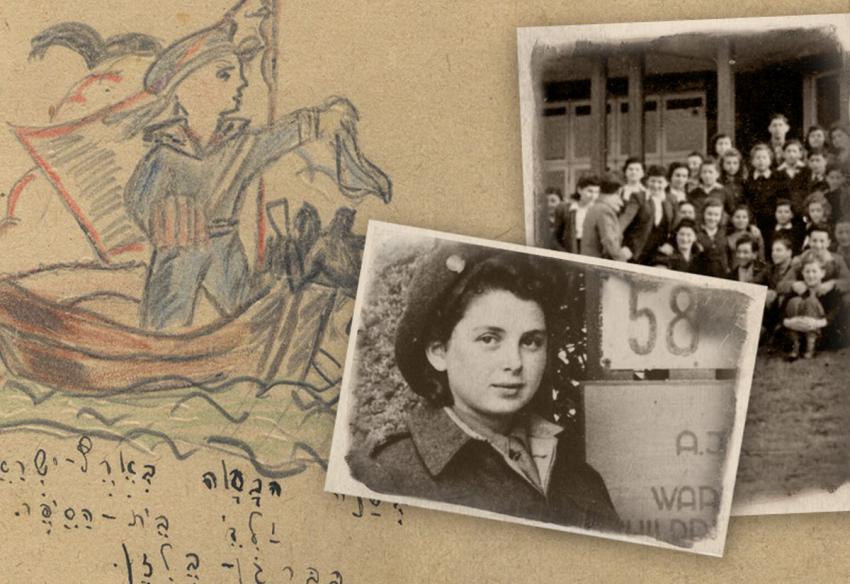24 January 2021
“After indescribable losses – my family, my childhood and my friends – I was tormented by physical and mental pain."
This heartwrenching testimony of Renee Kochman (Renia Baaf) expresses the sense of the utter despair she and many thousands of survivors felt after liberation. During the war, all of their energies were focused on the daily struggle to survive. Now that they had finally been liberated by the Allied Forces and their enemies destroyed, those who had lived through the Holocaust were faced with having to piece together their lives.
Child survivors were especially affected by this newfound reality. Many of them, entrusted during the Shoah to non-Jews for safekeeping from the Nazi onslaught, were left with no one to redeem them. While DP camps helped restore a sense of community and a feeling of agency for many adult survivors, children required a special set of needs and care – in the medical, psychological and educational spheres. In the months following liberation, social welfare organizations began establishing special children's homes throughout much of Europe to meet these demands.
In advance of International Holocaust Remembrance Day, Yad Vashem, the World Holocaust Remembrance Center, has uploaded a new online exhibition, entitled “My Lost Childhood,” telling the stories of seven of these homes established across Europe in the immediate aftermath of the Holocaust. Through the voices of survivor testimony as well as artifacts, photographs and documents from Yad Vashem's unrivalled collections, this moving exhibition brings to life the terrifying ordeals of the children brought to the homes, and how they were gently assisted – often by survivors themselves – to re-enter normative society.
"This exhibition sheds light on what Jewish children had to endure in order to survive and then rebuild their lives," states Dana Porath, Director of the Digital Department in Yad Vashem's Communications Division. "But above all, it tells the story of the resilience of these children and how, despite their unspeakable traumas, the vast majority became fully contributing members to the countries in which they later settled."
"Today, as the world continues to battle expressions of hatred, antisemitism and xenophobia, the significance and meaning of the Holocaust is particularly relevant," remarks Yad Vashem Chairman Avner Shalev. "It is Yad Vashem's ongoing mission to make sure that the stories and voices of the Holocaust victims and survivors are maintained and preserved for generations to come."
Please visit Yad Vashem's website for more information about the Holocaust, commemorative activities for International Holocaust Remembrance Day and more online exhibitions.

